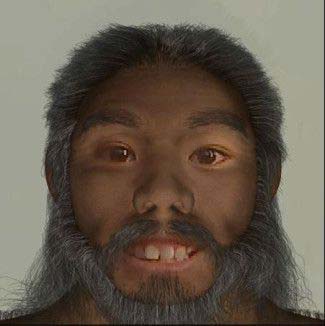How to Overcome Anxiety by Understanding Your Psyche, 1

If we want to understand how to control anxiety, it would help a lot to understand some things about the workings of the psyche.

- To understand our minds,
- we must understand the minds of our ancestors.
Let me start things off with a bang, by saying something provocative:
Thank Goodness We Get Anxious!
It’s true! We live in an era when anxiety is often classified into this or that particular disorder in the psychiatric “Bible” known as the DSM. Yet, it’s very wise for me to keep in mind the good things my anxiety does for me. As Jungian psychiatrist Anthony Stevens puts it,
“Psychiatric emphasis on anxiety as a classifiable ‘illness’ has given rise to the erroneous belief, current through most of this century, that anxiety is ‘neurotic’ and that no well-adjusted person should expect to suffer from it. In fact, the capacity to experience anxiety is indispensable to survival and reproductive success.
An animal incapable of fear is a dead animal.”
Imagine life without anxiety or fear. The odds of surviving even one days’ rush hour commute would be appallingly low!
[hs_form id=”17″]
Anxiety Helps Us to Adapt…
It’s well established in case studies now that anxiety is a high-alertness state that enables all animals, including humans to be highly aware of changes in our environment, in response to perceived threats that may be coming our way. In this state, among other effects, adrenalin is secreted, breathing becomes intense, heart rate goes up and the large muscle groups are mobilized for use in fight, flight, or other survival behaviors. This is essential where there’s a real threat, but poses huge difficulties if there’s no real danger.

Anxiety Can Short Circuit Life
For Jungians, as for evolutionary psychologists, anxiety disorders are exaggerated or inappropriate forms of adaptive strategies.
Example: In nature, animals stay on their own, familiar turf. It can be essential for an animal, or a human, to stay near home turf to avoid threats from predators, unfamiliar territory or hostile tribes. So, natural selection has created an innate predisposition in humans to stick close to home and to avoid strangers.
This works for primates in the Olduvai gorge, or Paleolithic tribespeople. But if these predispositions get activated in a modern, suburban person, and make her or him afraid of going out the front door — that’s a crippling difficulty. It’s essential that this person find a greater sense of security and self-confidence — and quite possibly a different relationship to the archetype of home.
Discovering how to overcome anxiety using case studies is often about making better friends with our instinctual and archetypal roots.
[cta]

